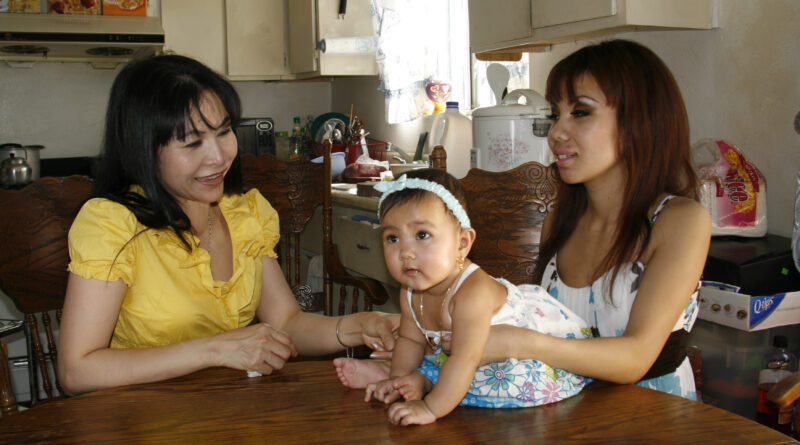Two-Part Webinar Series: Implicit Bias and Cultural Humility Considerations for Home Visitors
[Editor’s note: This blog post was updated May 2025 to include the second webinar, which took place May 20, 2025. Scroll down to watch both webinars.]
Home visitors work with clients from diverse cultural backgrounds, each bringing their own unique values, beliefs, and customs to the table. It’s essential to recognize and manage our own biases when working with families, especially when navigating cross-cultural communication in high-stress situations, such as a client adjusting to life as a new mom. During stressful moments, our unconscious biases can surface, influencing the way we interact. Making a point to embrace cultural humility helps reduce these biases and fosters more effective and compassionate communication between the Parent Coach and client.
In the first webinar of this two-part series — hosted by LA Best Babies Network on March 17, 2025, for Parent Coaches in the Welcome Baby program, and for other staff in our network of home visiting organizations and Welcome Baby hospitals — Carmen Rezak with the Perinatal Advisory Council: Leadership, Advocacy, Consultation (PAC/LAC):
- Defines cultural humility
- Explains the differences between cultural humility and cultural competency
- Reviews the theories of cultural humility and cultural care diversity
- Gives an overview on strategies to develop cultural humility and identify common obstacles
- Provides practical steps to engage in cultural humility
In the second webinar, hosted on May 20, 2025, Rezak:
- Reviews the concept and core principles of cultural humility
- Outlines techniques and interventions to enhance awareness and understanding of cultural humility
- Highlights key elements of cultural humility and cultural safety in child and maternal healthcare
- Presents examples of various postpartum cultural practices
Cultural humility is an ongoing process of self-reflection, self-exploration, and self-critique. It involves learning about one’s own history, values, and beliefs, recognizing personal biases, and remaining open to understanding other cultures. By acknowledging power imbalances and committing to respect diverse perspectives, cultural humility fosters deeper empathy and more effective interactions.
The 5 “Rs” of cultural humility:
- Reflection
- Respect
- Regard
- Relevance
- Resiliency
Cultural competence implies mastering an understanding of different cultures, while cultural humility emphasizes recognizing the limits of one’s knowledge and continually expanding cultural awareness. It involves acknowledging power imbalances, challenging biases, and actively listening to others’ perspectives without making assumptions.
Both webinars outline strategies for increasing cultural humility and understanding.
Watch the webinar recordings here, and don’t miss the links to related resources below:
Part I: Cultural Humility Considerations for Welcome Baby Parent Coaches:
Part II: Cultural Humility Considerations for Welcome Baby Parent Coaches:
About the presenter:
Carmen Rezak, MJ, MSN, RN, WHCNP-BC, is a senior healthcare nurse leader with expertise in maternal-child health. Having served the greater Los Angeles area for over 30 years, she has worked as a certified Women’s Health Care Nurse Practitioner, a Perinatal Nursing Specialist, Director of Perinatal Services, and Corporate Maternal-Child Health Project Coordinator for AHMC Health Care. She has been with PAC/LAC since 2021, and is considered a pioneer in leading hospitals to promote and support breastfeeding. Specifically, she has helped four hospitals (including the first one in L.A. County) to achieve a Baby Friendly designation. Carmen is the past Board President of BreastfeedLA and is dedicated to improving the health and wellbeing of women, infants, and families through quality care, outreach, and advocacy to promote and support breastfeeding and best practices. Carmen received a Master of Jurisprudence in Health Law from Loyola University Chicago and a BSN/MSN in Nursing. In 2017, she co-founded the Asian, Pacific Islander, Native Hawaiian Breastfeeding Task Force of L.A. County to improve education and to support the cultural needs of breastfeeding Asian American/Pacific Islander women. Her other passion is advocating and supporting women and families experiencing perinatal mood and anxiety disorders (PMADs). She is very focused on bridging the healthcare disparity gap and helping perinatal healthcare providers learn about the impact of implicit bias, racism, and cultural humility. She is currently completing her Doctor of Nursing Practice (DNP) in Advanced Leadership in Healthcare Specialization.
Related resources:
- Webinar presentation slides:
- What Is Cultural Humility? (video from Psych Hub)
- Cultural Humility Tools and Strategies: What Does Cultural Humility Look Like and How Can It Lead To Trust-building? (Academic Senate for California Community Colleges)
- Cultural Humility Toolkit (Academic Senate for California Community Colleges)
- Think Cultural Health

